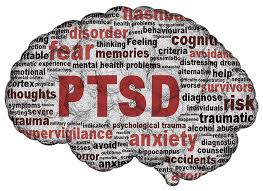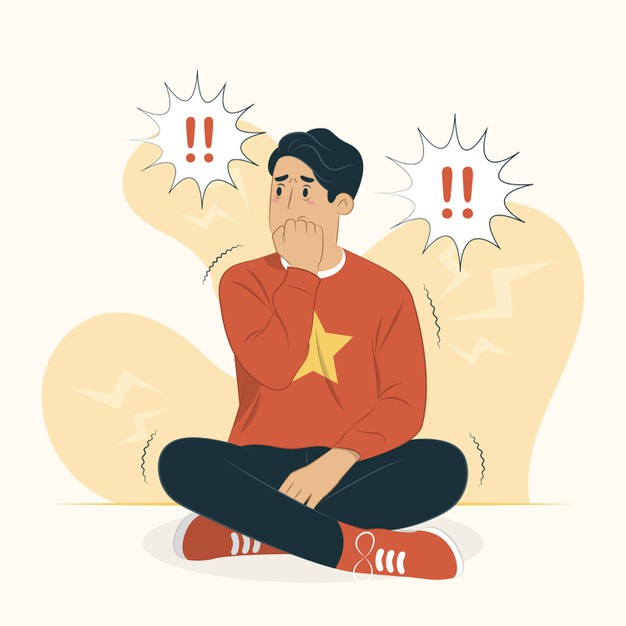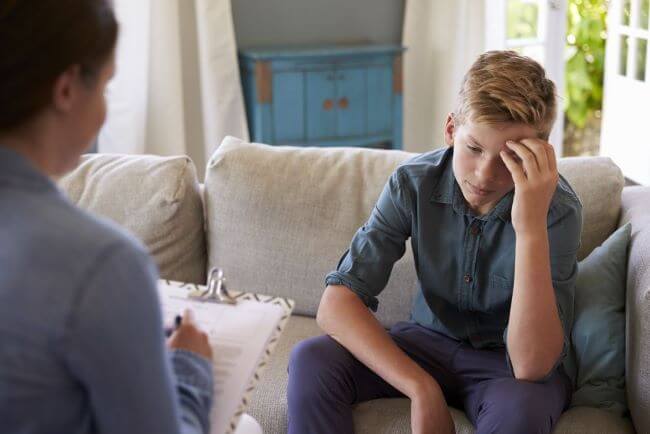PTSD in Teens: Symptoms & Treatment that Parents Should Know
How Parents Help Teens with PTSD
ALL TOPICS
- YouTube Parental Control
-
- How to see your YouTube history?
- What is Metaverse? Parent Guide
- Put parental controls on YouTube
- Delete TikTok Account without Phone Number
- Ways to block YouTube channels
- Ways to Get Somone's IP Address and Hide IP Address
- A complete guide on YouTube parental control
- What is Fanfiction? Parents Guide
- Kids safe YouTube alternative
- Top 5 TikTok Alternatives
- Methods to restrict YouTube adult content
- Social Media App Parental Controls
- Parental Control Tips
Sep 11, 2024 Filed to: Parent's Guide Proven solutions
Traumatic events can leave drastic, sometimes lifelong, impacts on survivors. School violence happens time and again. In school shootings, like the most recent ones in Texas and California, immediate attention is offered to the ones that are physically harmed - and rightly so. But what about the tens or hundreds of children who watched it happen.
Young, vulnerable minds are the ones that are most susceptible to PTSD. PTSD symptoms can manifest in children and teens who live through such distressing events. If you leave the child be, the mental stress can take more serious turns and develop into various other symptoms.
And it gets worse:
Parents who don’t completely understand what’s going on and how to handle it can end up feeling frustrated. Nagging and yelling will worsen the situation!
As long as your child has you to care for them and feel loved and protected, PTSD in teens can be managed. Gradually, the teenager can leave the distressing memories behind and return to their normal self.
However, as a parent of a teen with PTSD, you need to equip yourself with the right knowledge. Read this post to understand the effects of trauma on kids so you can address their behavior correctly and produce positive results.

What is PTSD? How Prone Are Teens?
PTSD or post-traumatic stress disorder is a health condition of the brain that typically follows a traumatic event. PTSD symptoms may not manifest immediately after the event. You may notice changes in the behavior of your teen weeks, months, or even years after the trauma actually occurred.
You may be wondering if PTSD really attacks teens? Wasn’t it just the soldiers that came back with horrifying memories of the war to haunt them for the rest of their lives?
Though PTSD is often associated with war survivors, children and teens are also susceptible, possibly more than adults.
Living through the COVID-19 pandemic, being involved in an accident, losing a loved one, being hospitalized, physical, sexual or mental abuse, or natural disasters can be severely stressful for kids. Being a victim of long-term bullying in school or cyberbullying can also cause PTSD in teens.
This is crazy:
A study at Columbia University revealed that the prevalence of PTSD in adolescents is higher than that in adults.
According to NIMH, an estimated 5% of US adolescents (aged 13 to 18) experience PTSD, with over 1.5% of teens experiencing severe impairment. Digging deeper into the same research reveals that PTSD in teens is more prevalent in older kids, with over 7% with PTSD in the age group 17-18, as compared to 3.7% in those aged between 13 to 14.

The Symptoms Of PTSD In Teens
When parenting a kid who has been through trauma, you need to be aware of the most common symptoms of PTSD in teens. The early signs may appear as stress, anxiety, and depression. If the stress continues, certain specific symptoms that are typical of teens with PTSD include:
- Disturbing Thoughts And Flashbacks
Imagine reliving the painful memories over and over - that’s what your child may be going through if they’ve watched a horrifying event first hand. Nightmares may wake them up traumatized in the middle of the night or leave them tossing in bed. If the kid writes or draws, their work will often reflect their bad experiences. Headaches, fear, and unusual jumpiness at situations that remind them of the event are common signs of PTSD.

- Negative Thoughts
The kid may blame themself for the event. For example, if they saw a shooting, they may regret not standing up to save the victim. If they're being bullied, they may feel weak against the oppressor and blame themselves for it. Feelings of guilt, shame, regrets, and frustration are common in teens with PTSD.
And it gets worse:
Kids may even start thinking of committing suicide.
- Avoiding Reminders
They'll tend to avoid any reminders of the event. Not wanting to talk about it, avoiding situations, places, or people who remind them of the trauma are typical PTSD symptoms. If a teen is refusing to visit a relative in the hospital, try to remember if he or she has had a traumatic stay at the hospital in the past. Sometimes, they might even fail to remember the details of the event itself.
- Isolating From People And Normal Routine
They may feel detached from the people around them. If your child is staying in their room, avoiding interactions, skipping school, and not following the usual routine, that should set off a red alert. Kids with PTSD are unable to focus; their school performance may suffer as a result.
They'll rarely display the usual feelings of excitement, happiness, and satisfaction at things they used to love. They'll show little or no interest in eating and have difficulty sleeping.

What Treatment Methods Are Available For Teens With PTSD?
If you do nothing about it now, PTSD can turn into something much serious. Symptoms of PTSD in teens can trigger reckless, risk-taking, and sometimes even suicidal behavior in teens.
What’s the bottom line?
Treatment is necessary. You may not need to start treatment right away. Many kids recover from their mental state once they’re given some time to adjust to what had happened. Nurture them, make them feel loved and safe to speed up the recovery. However, if PTSD symptoms persist for a month, with no visible improvement, seek help from a professional.
PTSD in teens can be treated with therapy. Seek help from a mental health professional, like a psychologist, psychiatrist, licensed clinical social worker, or a licensed trauma professional.
Treatment Options For Teens

Here's a list of different therapies that can help teens recover from PTSD:
- Cognitive-Behavioral Therapy
CBT is the most common and effective therapy for people with PTSD. Trauma-focused CBT teaches adolescents how to replace negative thoughts with positive ones. Over time, it also desensitizes the teen to the trauma until it's not fearful anymore.
- Eye Movement Desensitization And Reprocessing Therapy
EMDR involves the patient narrating the event out loud while moving their eyes back and forth rapidly. It can be effective for people of all ages if they’re experiencing PTSD.
- Dialectical Behavioral Therapy
This type of therapy helps the child learn how to manage the distressing feelings on their own. It also tells them how to handle unhealthy changes in their behavior.
- Psychological First Aid
PFA can be used on teens right after the trauma. This type of therapy allows adolescents to experience their feelings in a safe environment and assures them that their feelings are normal. Eventually, it helps calm the person and teaches them how to handle what they're feeling.
- Medication
Antidepressant medications can help balance brain chemicals. However, there can be side effects, especially in adolescents. Discuss the options with a medical health practitioner to learn if medication is a suitable option in your child’s case.
What More can Parents Do to Help Teens with PTSD?
Other than professional treatment, support, love, and understanding from their family can help reduce symptoms of PTSD in teens. Parenting a kid with PTSD requires tremendous patience and consideration.
You might be wondering what you can do to help your kid. Here are some things parents should know about:
- Kids need time to adjust to the trauma. Give them that time and be supportive and loving throughout the period.
- Try to maintain the same routine as they had before the trauma. Make sure they take their meals on time, get around 9 hours of sleep at night, don't skip school, and so on.
- When they feel ready, let them talk about the event. Appreciate them for being brave and discussing it. However, if they’re reluctant to discuss it, don’t force them.
- Finding that your teen has PTSD can be hard on you too. Try to keep yourself calm and composed. Seeing you troubled can worsen the effects on your child. Seek counseling for yourself. CBT is helpful for adults too.
Here’s the deal:
PTSD in teens isn't a lifelong ailment. With treatment and support from parents, most kids with PTSD symptoms recover and resume their healthy, happy lifestyles.
FamiSafe - An App To Help Parents Keep An Eye On Teens' Online Activity
When it comes to parenting, FamiSafe is your ultimate partner. It will keep you aware of your child's online activity, so you can always know that they're safe. A typical teen probably spends more time online than they do connect with the family. Their browsing history, Facebook statuses, and photo gallery is a clear indication of their mental state.
- Location Tracking & Geo-fencing
- App Blocker
- Web Filtering
- Screen Time Control
- Smart Parental Control Setting
How does FamiSafe help?
Here are some resourceful features of the app you might want to know about:
- Browsing History
You can view your kid's private or incognito browsing history to keep yourself informed about what the kid is into.
- Web Filter
You can also block websites on Chrome and Safari by category. Specific websites can also be blocked. You'll receive notifications if your teen tries to access these sites.
- Explicit Content Detection
Inappropriate video titles, descriptions, comments, and messages can be detected, and you'll receive notifications on your phone.
- YouTube Monitor
You can view your kid’s YouTube history and block channels or videos you find suspicious.
Traumatic events are unavoidable. The impacts they leave on young minds shouldn’t be taken lightly.
What’s the bottom line:
Keep a close watch on your child and if you identify PTSD symptoms, take the appropriate action. With the right treatment and support, your teen will recover and return to their happy, lively self.

Thomas Jones
chief Editor